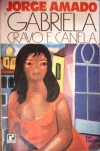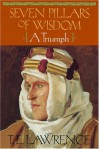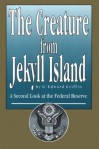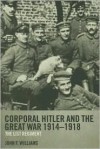Currently reading
A FRIENDSHIP MADE & LOST IN WAR

"THE AMBULANCE DRIVERS: Hemingway, Dos Passos, and a Friendship Made and Lost in War" serves as both a dual biography and a story of 2 men who shared an ambition of making themselves the pre-eminent writers of their generation.
I wish to give credit to James McGrath Morris for writing such an interesting and engaging book. Prior to reading "THE AMBULANCE DRIVERS", I had cursory knowledge about Hemingway and had read one of his short stories during my freshman year in college that I thought at the time was rather good. A testament to the sparse prose that typifies Hemingway's best writing. As for John dos Passos, he was little more than a name I chanced upon over the past 20 years. I had read 2 books of his - the anti-war World War I novel 'Three Soldiers' (originally published in 1921) and a work of non-fiction, 'Mr. Wilson's War: From the Assassination of McKinley to the Defeat of the League of Nations' - both of which I liked, though I much preferred the latter to the former. So, when I came across "THE AMBULANCE DRIVERS" in a local, independent bookstore several weeks ago and read its flyleaf, I was determined to buy it.
Both men, despite their shared literary ambition, could not have been more different. Dos Passos, an only child from a somewhat affluent background, had grown up partly in Europe and partly in the U.S. and spoke several languages fluently. He was admitted to Harvard at 16 and graduated 4 years later in 1916. Curious about the war in Europe, he made his war to France early in 1917 and later joined the ambulance corps, serving on the Western Front on attachment with the French Army that summer. The experience solidified Dos Passos' impression of war as an absurdity fostered by governments practicing deceit (via propaganda) and a needless waste of lives.
Hemingway grew up in Oak Park, Illinois (near Chicago), the second of 5 children to a physician father and a mother who had trained as a musician. With America's entry into World War I in 1917, Hemingway, freshly out of high school, was keen to join the fight. But without his parents' consent, it wasn't possible for him to join the U.S. Army. So, for the remainder of the year, Hemingway went to work for The Kansas City Star as a cub reporter. There he honed his writing skills and came to rely on the Star's guide which came to define him later as a writer: "Use short sentences. Use short first paragraphs. Use vigorous English. Be positive, not negative."
Early in 1918, Hemingway responded to a recruitment drive from the Red Cross for ambulance drivers to serve at the Front. He arrived in France in June 1918. It was a critical time in the war with the Germans scarcely 40 miles from Paris and on the move. Hemingway didn't remain in France long. He went to Italy, where he and Dos Passos first became acquainted with each other. It was a brief encounter for both men. Hemingway was soon sent to the Front, where he was wounded in a mortar attack and ended up hospitalized in Italy for several months afterward. Dos Passos had run afoul of the Red Cross authorities for some anti-war remarks he had made in a letter to a friend in Spain that had been confiscated, translated, and read by Dos Passos' superiors. Plus, the draft board in the U.S. was breathing down his neck because Dos Passos had been out of the country at the time he had received a draft notice from the Army in 1917. So, Dos Passos returned to the U.S., was allowed to join the Army, returned with it to France shortly after the Armistice, gained acceptance into a special study program at the Sorbonne - courtesy of the Army, and was honorably discharged late in 1919.
The book, in the main, is about the development and the ups and downs of Hemingway's and Dos Passos' friendship. (The book also gives the reader wide ranging views of the personal lives of both men.) It was a friendship that was, at turns, supportive and fiercely competitive. As Hemingway gained fame from his best-selling novel, 'The Sun Also Rises' (1926) and gradually established his fame and reputation as a writer over the next decade, his friendship with Dos Passos would become fractious and eventually fall apart while both men were in Spain covering the civil war there in 1937.
I enjoyed reading "THE AMBULANCE DRIVERS" so much and recommend it to anyone wanting to learn about the lives of 2 key figures in 20th century American literature.













